In today’s hyper-connecte world. Businesses thrive on strong relationships and effective communication. At the heart of this lies the power of a well-organize contact database – a repository that stores vital information about customers, partners, potential leads, and key stakeholders. However, managing these databases in-house can be a resource-intensive endeavor. This is where contact database solutions step in, offering a comprehensive toolkit to streamline your contact management and communication processes.
This informative guide delves into the world List of estonia Cell Phone Numbers of contact database solutions, exploring various options available. We’ll unveil the functionalities offere by in-house software, cloud-base platforms, and hybrid solutions, empowering you to select the ideal approach for your unique business needs.
Demystifying the Options: A Landscape of Contact Database Solutions
The landscape of contact database solutions offers a spectrum of options, each with its own strengths and limitations. Here’s a breakdown of the three primary categories:
-
In-House Software:
- Functionalities: In-house software provides complete control over your data, allowing for customization of functionalities to perfectly align with your specific nees. This might include advance data analysis features, integration with unique internal systems, or specialize reporting capabilities.
- Benefits: Full control over data security and customization are the primary advantages. In-house solutions are well-suite for businesses with highly specific contact management requirements or those with strict data privacy regulations.
- Drawbacks: Significant upfront investment in software licenses, server infrastructure, and IT expertise for implementation and maintenance are major drawbacks. Scalability can also be an issue, as the system nees to be constantly upgrade to accommodate growing data volumes.
-
Cloud-Based Platforms:
-
- Functionalities: Cloud-base contact database platforms offer a secure and scalable solution. Data is hoste in the provider’s secure cloud environment, accessible from any device with an internet connection. These platforms typically offer core contact management features like adding, eiting, and organizing contacts, along with functionalities like data cleansing, advance search capabilities, and integration with popular business applications.
- Benefits: Cost-effectiveness, scalability, and ease of use are key advantages. Cloud-base solutions eliminate the nee for in-house infrastructure and IT expertise, making them ideal for businesses of all sizes. Regular updates and maintenance are handle by the provider, ensuring your platform remains current and secure.
- Drawbacks: Customization options might be limite compare to in-house software. Data security, while robust with reputable providers, is ultimately entruste to a third party.
-
Hybrid Solutions:
-
- Functionalities: Hybrid solutions combine elements of both in-house software and cloud-base platforms. Core data might be store on in-house servers, while certain functionalities like data backup, disaster recovery, or specific analytical tools might be accesse through a cloud-basd service.
- Benefits: Hybrid solutions offer a balance between customization and scalability. Businesses can maintain control over sensitive data while leveraging cloud-base functionalities for specific nees.
- Drawbacks: Implementation and maintenance can be complex, requiring a combination of in-house IT expertise and collaboration with a cloud service provider. Scalability might be less seamless compard to pure cloud-base solutions.
Selecting the Ideal Approach: Factors to Consider When Choosing Contact Database Solutions
Deciding on the optimal contact database solution for your business requires careful consideration of various factors:
- Business Size and Needs: For startups or small businesses with basic contact management needs, a cloud-based platform might be the most cost-effective and user-friendly option. Large enterprises with complex data structures and stringent security requirements might benefit more from in-house software or a hybrid solution.
- Data Security and Compliance: Data security should be a top priority. Evaluate the security measures offered by all potential solutions, ensuring they comply with relevant industry regulations and provide sufficient protection for your sensitive contact information.
- Budget: In-house software solutions often require a significant initial investment, while cloud-based platforms typically offer subscription-base pricing models. Hybrid solutions can vary depending on the specific combination of in-house and cloud-based functionalities.
- IT Expertise
- In-house solutions require a dedicated IT team for Demystifying Phone Numbers A Guide to Global Communication in the Digital Age implementation, maintenance, and ongoing updates. Cloud-based platforms are generally more user-friendly and require minimal in-house IT expertise. Hybrid solutions necessitate a balance between internal IT capabilities and expertise offered by the cloud service provider.
- Scalability: Consider your projected growth. Cloud-based solutions offer superior scalability, automatically adjusting to accommodate your expanding contact list. In-house software might require hardware upgrades or software revisions to handle increased data volume.
- Integration Capabilities: Evaluate how the chosen solution integrates with your existing business



